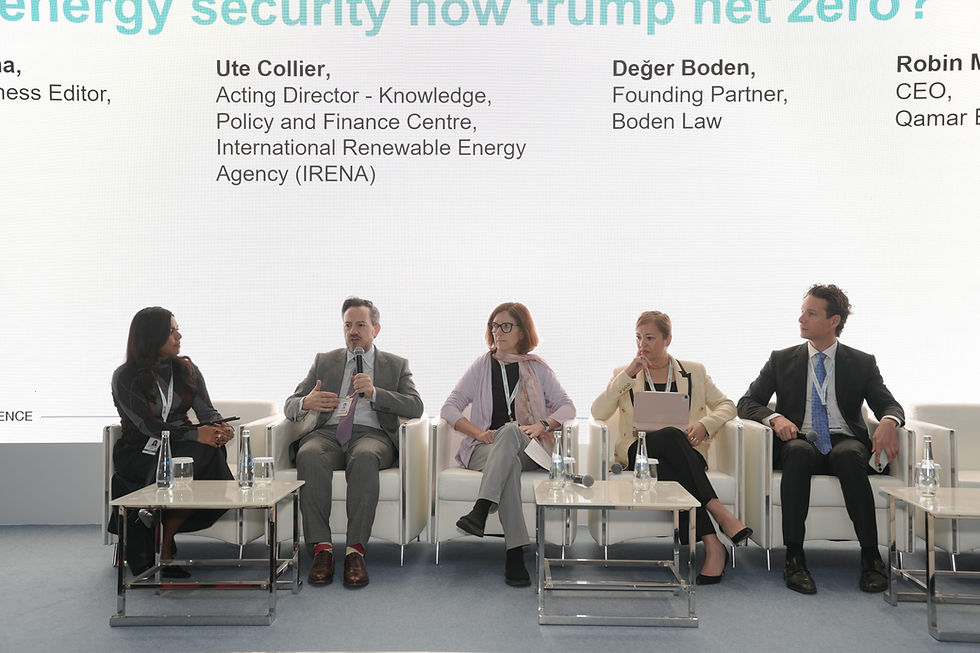Opening Keynote delivered by Jeffrey Beyer at GreenTech Confex, Saudi Arabia
- Zest Associates

- Sep 20, 2022
- 2 min read
Discussing opportunties to accelerate green technology in Saudi Arabia and the MENA region, Zest's Managing Director Jeffrey Beyer addressed the GreenTech Confex as the Opening Keynote speaker.
Beyer's keynote reviewed the actions that are available for governments in the Middle East to overcome barriers to investment and unlock the potential of the private sector.
He noted that most countries have Vision documents that outline ambitious plans for 2030, 2035 or 2040, but that work must be done to turn those visions into reality.
This requires a careful sector-by-sector appraisal of the projects that enable low carbon transition, and an assessment of the most efficient means to fund them. Projects and funding streams can then be aligned in a detailed financing strategy that directs developers and investors towards a bankable project pipeline.
In many cases, national governments can deploy their limited capital strategically to 'leverage in' private sector money, which comprises 80% of total spending in MENA on average. By offering catalytic loans, risk insurance, government-backed guarantees or limited subsidies, governments can unlock huge volumes of private sector capital and channel it towards sustainable projects.
Beyer also acknowledged the particular strength and size of the region's sovereign wealth funds (SWFs) and state-owned enterprises (SOEs). SWFs have enormous capital endowments and a mission to deliver both social and financial objectives. SOEs represent an outsized proportion of countries' greenhouse gas emissions, but also have the skills and infrastructure needed for many low carbon industries like green and blue hydrogen.
Taking advantage of the synergy between SWFs and SOEs can deliver dividends in terms of financial returns, job creation and progress towards Net Zero targets.
GreenTech Confex continues tomorrow, where Beyer will moderate a panel on the role of digital technology in sustainability.



Comments